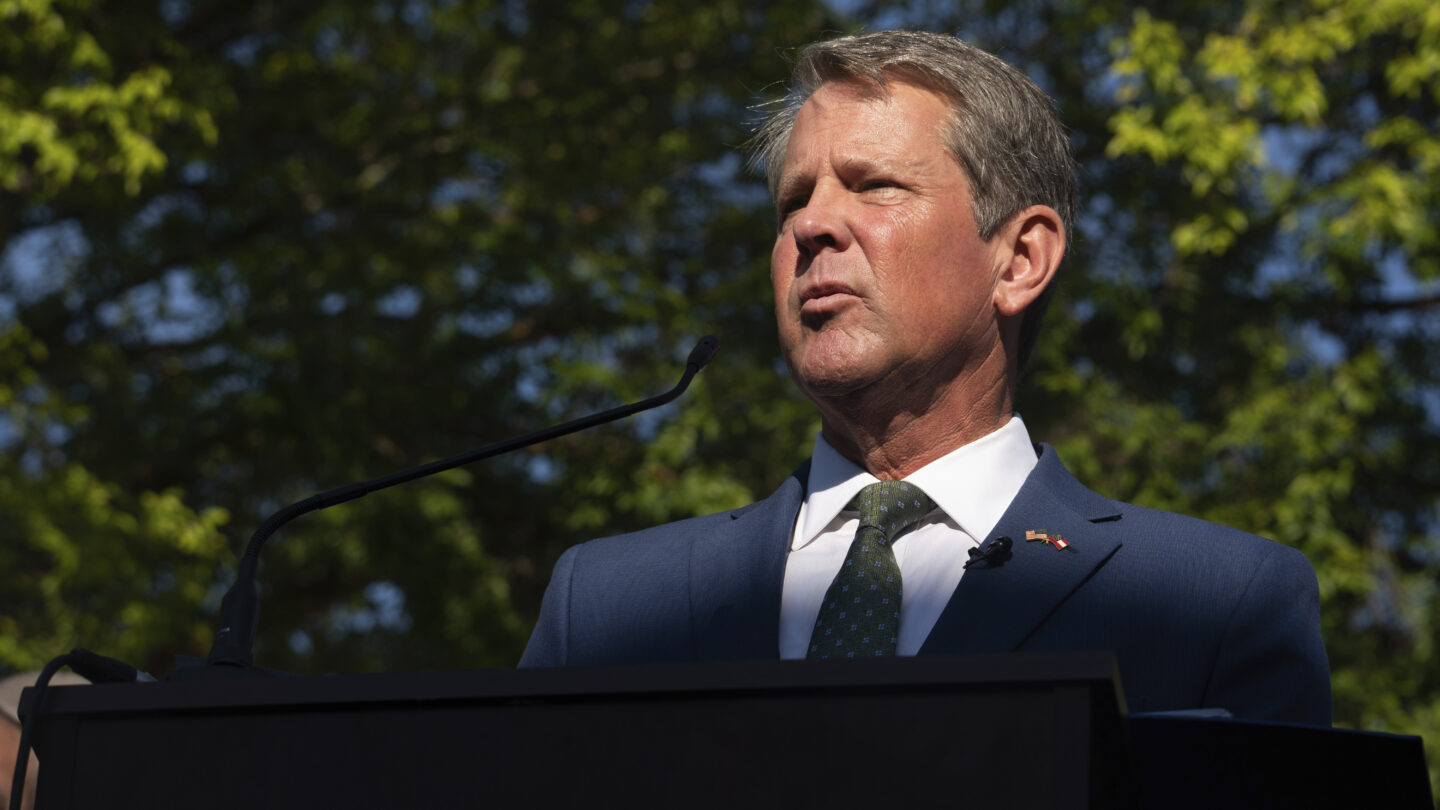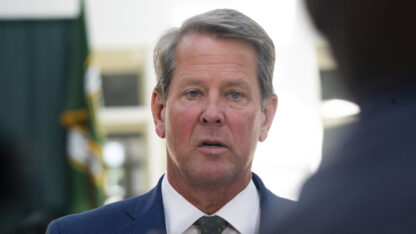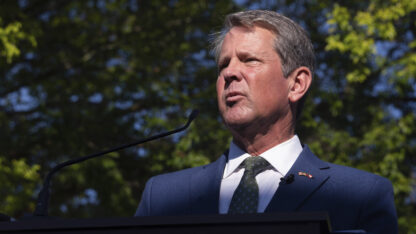Amid surplus, Kemp again seeks to hold Georgia spending flat

Even after two years of big surpluses, Georgia Gov. Brian Kemp is telling state agencies not to get their hopes up for more money.
Office of Planning and Budget Director Kelly Farr on Wednesday wrote in a yearly memo that kicks off the state budget process that agencies should not ask for any more money than they got in the current budget, which started July 1.
Exempted are education and healthcare agencies that get money based on enrollment or other formulas.
Farr outlined the Kemp administration’s decision to instruct agencies not to ask for increases in a memo that includes a laundry list of reasons why budgets might not stretch as far next year as this year.
“While Georgia’s economy remains strong, national economic policies are bringing more significant headwinds to our state as a result of inflation, supply chain disruptions and increased gas prices that may impact state finances,” Farr wrote.
“While we expect state revenues to be sufficient to meet the needs of our growing population, inflationary pressures will be a significant driver in the upcoming budget cycle.”
Most agencies saw big spending increases this year driven by $5,000 pay raises for state employees. But while the state added resources to pay for a mental health overhaul, many other agencies did not get much to expand the scope of their work, despite a sharp cut in state spending during the uncertainty at the start of COVID-19 pandemic.
If reelected, Kemp will propose to lawmakers when they convene in January changes to the current year’s budget, plus a budget for the 2024 fiscal year beginning next July.
Although lawmakers make changes, those spending documents tend to guide the process. If Democrat Stacey Abrams defeats Kemp, she would inherit partially written budgets with a short window to make changes.
The governor’s office could propose higher spending above agency proposals, but instructing agencies to submit flat budgets makes it harder for them to lay out needs and wants that might tempt lawmakers to seek more spending Kemp doesn’t want.
Georgia is budgeted to spend $30.2 billion in state revenue and $57.9 billion overall, in what was a nearly 11% overall increase in spending. But revenues came in so high last year that the state ran a roughly $5 billion surplus, and Georgia could bank a similar surplus again at the end of this year if revenues only equal last year’s collections.
Inflation and wage increases are likely to drive jumps in collections of sales and income taxes, although Kemp’s decision to waive fuel taxes is costing it more than $150 million every month.
One of Kemp’s strongest powers as governor is setting the revenue estimate, an amount lawmakers cannot spend above. Critics of Kemp’s fiscal policy like the liberal leaning Georgia Budget & Police Institute say he’s starving state services by setting an artificially low revenue estimate.
Abrams argued in a speech laying out her economic vision Tuesday that Georgia should use higher revenue to expand Medicaid instead of giving it all back in tax breaks.
Abrams and Kemp both support an additional $1 billion in tax rebates. Kemp also wants lawmakers to approve a $1 billion property tax rebate for homeowners, something Abrams opposes.
“I will use our once-in-a-generation surplus to solve foundational challenges, not buy election year goodwill,” Abrams said Tuesday.








